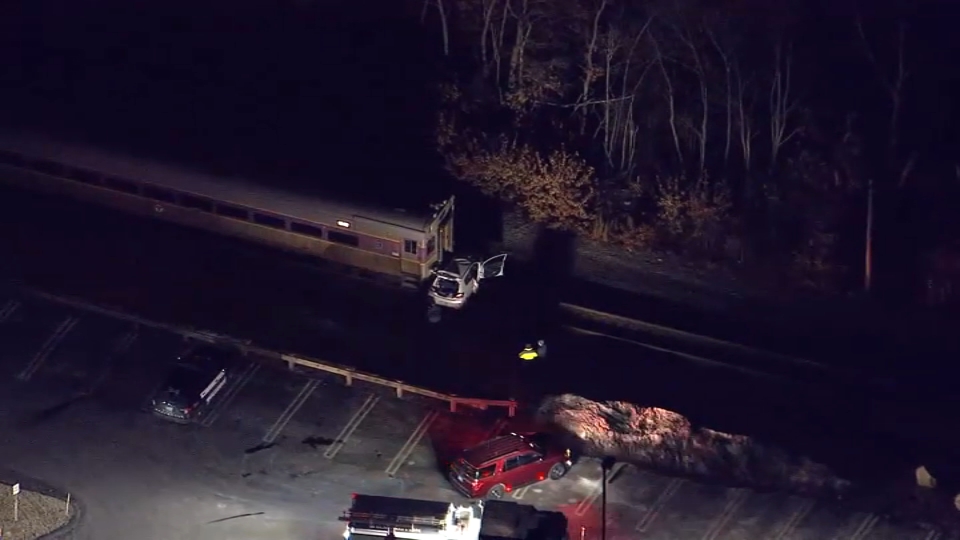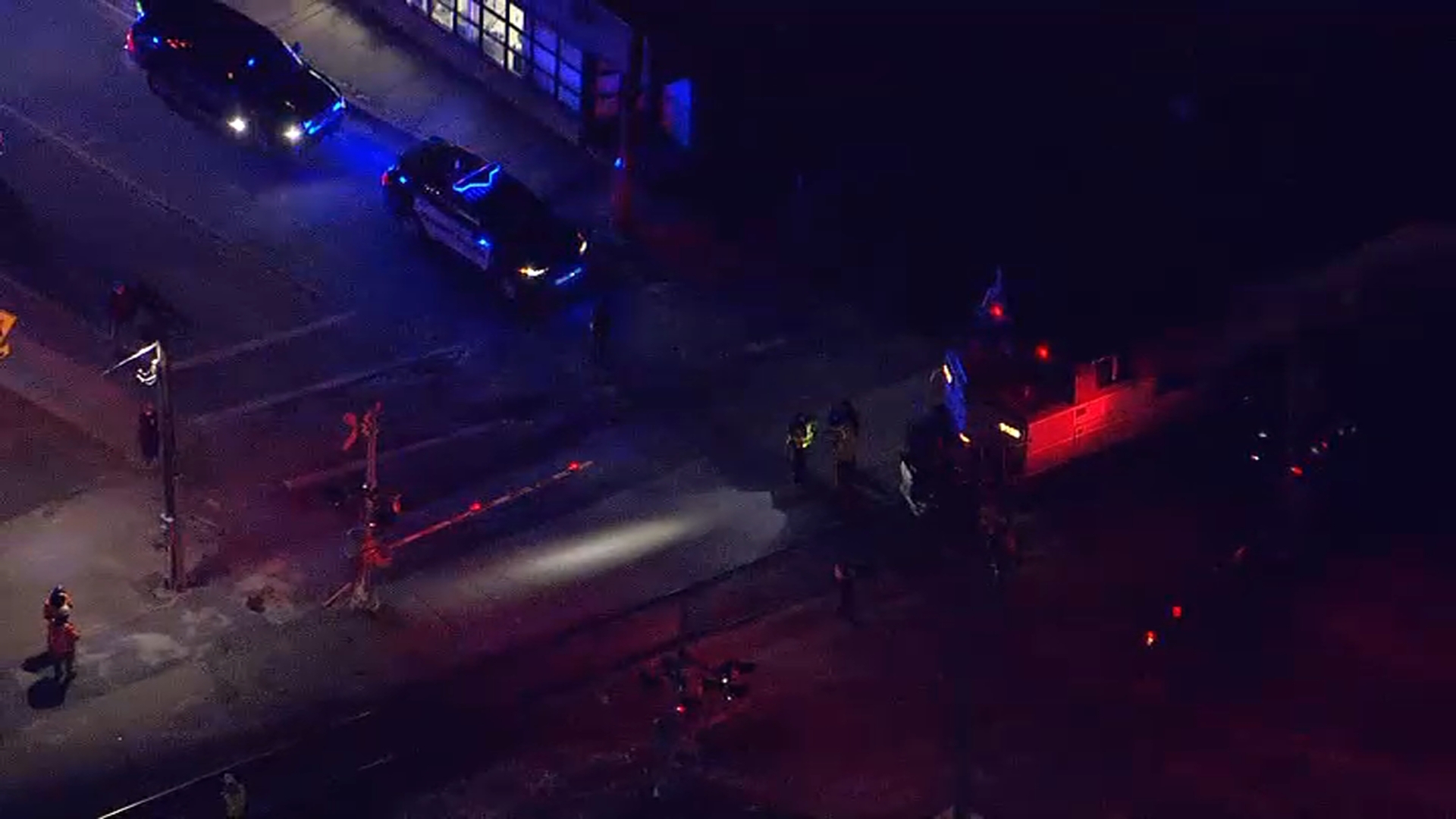The images of the mangled white car on Celeste Edmundson's television didn't register with her initially. She was watching a news report about a car that had been hit by an MBTA Commuter Rail train, and immediately thought of her sister.
"I sent her a text saying, 'I hope you weren't on that train,'" Edmundson recalled.
Time passed, but still no reply.
"My husband, Jimmy, said, 'You didn't hear back from Robbie, did you?' That's when I checked my phone," Edmundson said. "I went, 'No I didn't.' And he says, 'It is a little white car.'"
Get Boston local news, weather forecasts, lifestyle and entertainment stories to your inbox. Sign up for NBC Boston’s newsletters.
A few moments later, the doorbell rang. Two police officers were at Edmundson's home to deliver tragic news.
"They said, 'Do you have a sister? Roberta?'" she recalled.
Roberta Sausville was killed on Jan. 21, 2022, at the Route 62 railroad crossing in Wilmington.
Shortly after the crash, a spokesperson for the MBTA said it appeared "human error" played a role in the crash.
A preliminary investigation found that before the crash, a signal maintainer for Keolis — the company that operates the MBTA Commuter Rail — was performing regularly scheduled testing and preventative maintenance of the railroad crossing's safety system. The system was not returned to its normal operating mode, which resulted in the crossing gates not coming down in a timely manner as the train approached.
"It made me really angry," Edmundson said of learning that human errors played a role in her sister's death. "She was just doing what she always did — trusting a system to protect her."
As her family approaches the somber anniversary of Sausville's death, they're locked in a contentious court battle with Keolis. Sausville's stepsons have filed a wrongful death lawsuit accusing the company of gross negligence and reckless conduct.
The family's lawsuit alleges Keolis and the signal maintainer failed to conduct the maintenance in a reasonable and safe manner and failed to comply with federal safety regulations related to the grade crossing’s signal system safety.
Keolis denies the accusations.
"Keolis Commuter Services takes the safety of its passengers and the public seriously," the company said in a statement. "Out of respect for the legal process, we respectfully decline to comment further on pending litigation."
Ever since that night, Edmundson has questioned how this could have happened.
"If you shut a system down that's for protection, to me, it seems that when it's turned back on, someone else should be there," Edmundson said. "There should be more than one person to witness that the system is up and running and doing what it's supposed to do."
Federal Railroad Administration records obtained by the NBC10 Boston Investigators show that since 2018, there have been at least three reported incidents of safety signals failing to activate at MBTA Commuter Rail crossings following maintenance work.
It happened twice in 2022. In one incident, a driver was nearly hit by a train.
Safety at commuter rail crossings have been a high priority for MBTA General Manager Philip Eng.
He recently showed off some of the new safety upgrades MBTA and Keolis made at the more than 240 commuter rail crossing in Massachusetts – including brighter red lights and crossing gates.
"Every single incident that we avoid is a life that we potentially save, and that's key to me," Eng said.
The incident is still under investigation by the Middlesex County District Attorney's Office, but after Sausville's death, Keolis made several safety changes.
The company said it retrained all its signal maintainers on what must be done before, during, and after the testing of a railroad crossing's safety system. Commuter rail dispatchers are now required to check with signal maintainers to ensure the safety system is enabled after their work is done. The signal maintainer must also remain on-site until the next train passes to ensure the system is fully operational and be prepared to manually control the system if it's not working.
For Edmundson, the changes have come far too late.
"She should still be here," she said.



